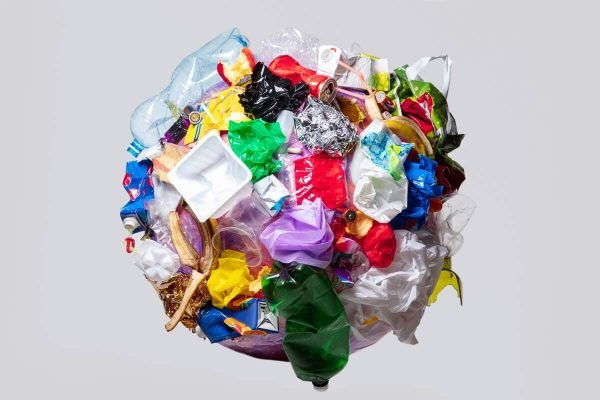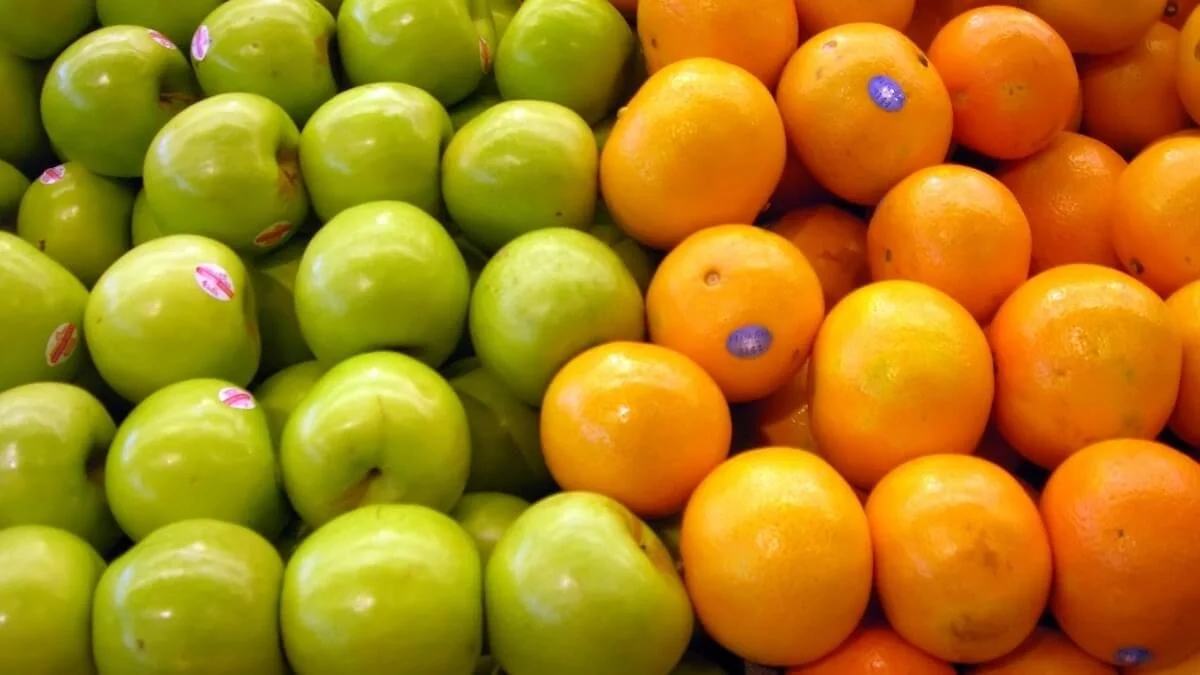Keeping Compost Contaminant-Free: Common Contaminants to Leave Out of the Bin
Much like recycling, composting is a great way to help the environment and keep waste out of landfills. But also like recycling, there are some guidelines to follow in order for it to work properly.
You may have seen lists or info posters on your local recycling bins about what types of materials can and can’t be recycled, specific plastic numbers and the like.
Similarly, if you use a composting service for your compostable waste, there are things that can and can’t go into compost bins. Let’s take a look at some of the most important (and perhaps surprising) items to keep out of the compost bin.
Plastic, Metal, and Glass
It’s important to clarify that composting and recycling are two different things.
Composting is the controlled decomposition of organic waste. It is made up primarily of food waste and natural matter like leaves and grass.
Recycling, as the term is commonly used, is the process where post-consumer waste is sorted, reclaimed, and converted into new material. The vast majority of recyclable materials are non-organic - glass bottles, aluminum and tin cans, and various types of plastic - and therefore can not be composted.
Plastic: Plastic can sometimes release harmful chemicals into the compost through a process known as chemical leaching.
Glass: composting is the decomposition of organic material, but glass is essentially unable to decompose. It can also break and shatter into very small shards, which would be dangerous to grow food in.
Metal: like glass, metal essentially does not break down. Elements known as heavy metals (such as lead) are especially dangerous to living organisms (humans included).
Produce Stickers, Rubber Bands, and Twist Ties
A lot of produce items we buy at the store come with little extras: rubber bands, twist ties, and stickers are among the most common. Let’s look at why these can’t be composted:
Produce stickers: these are the small stickers you will find on your apples, bananas, and other produce. They have the product code on them for the clerk to use at checkout. Since produce stickers are made of a thin layer of plastic and paper, they are not biodegradable and therefore not able to decompose naturally. You can learn more about these stickers and what to do with them on our website.
Rubber bands: you might find these around your stalks of asparagus or holding the plastic on a bouquet of flowers. While rubber is made from the sap of a tree and is therefore biodegradable, the amount of time it takes to break down is much longer than the time it takes your compostable waste to turn into compost. Therefore they have to be sorted out and thrown away by the composting facility. It’s best to not include them at all. Plus, they can be saved and reused!
Twist ties: these are the little metal and plastic strips that often hold loose leaf produce like parsley or kale together, and come in boxes of trash bags. Because of the metal and the plastic, they should not be composted. Twist ties can also be reused a few times if you want to keep them out of landfills as long as possible.
When these types of objects are included in bins that are then collected by composting companies, it becomes very difficult for the processing facilities to filter them out.
Food Service Gloves & Hairnets
For many businesses, and certainly for those in the food service industry, protective disposable gloves are a must - both for worker protection and for sanitary and regulatory reasons. Workers often need to change gloves frequently depending on the tasks - such as food preparation, dishwashing, or cleaning - and when they get dirty or tear.
Unfortunately, these gloves are made out of synthetic material, usually latex or nitrile. Synthetic materials don’t break down the way that organic material does, and therefore cannot be composted.
The same is true of hair nets - head coverings used in food processing and service to keep workers’ hair out of the way. Hair nets are made out of nylon, another synthetic material that is not compostable.
Nylon, latex, and nitrile are recyclable materials, but acceptance varies by recycling processing centers. Verify with your recycling service to confirm if they accept disposable gloves and hairnets.
Of course, accidents can happen, and these products can wind up in compost bins. One step you can take with gloves is to use brightly colored kinds, which will stand out from most of what is compostable. That way it is easy for colleagues and compost processing employees to spot and remove them.
Packaging That Appears to Be Compostable…But Isn’t
As with recycling, there can be many things that appear to be compostable but in fact are not.
Non-compostable coatings: a good example of this are milk and juice cartons. While they are made of paper (which would sometimes be accepted as compostable), they are often sprayed with a thin plastic coating which makes them unable to break down for use in compost.
Tea bags: some tea bags are fine to compost, but others may use non-compostable materials, such as nylon, to make the bags.
Biodegradable plastics: some plastics are made to be biodegradable, however they don’t achieve this in the short window of time it takes for turning organic waste into compost. They may even require specialized equipment and environments in order to biodegrade.
Greenwashed products: greenwashing is when a company makes vague or exaggerated claims of sustainability on their products, often using keywords and phrases like “all natural” or “eco friendly.”. Even a claim such as “made from recycled material” is not necessarily completely true.
Food and Other Items That Appear to Be Compostable…But Sometimes Aren’t
There are types of organic matter that are often not accepted by most composting services. Cooking oils such as olive or vegetable oil are not suitable for commercial composting. Pet waste and fecal matter should never be composted as they can be a significant source of contaminants.
Some items that are compostable will vary by region or company. For example, some companies welcome items such as paper towels, tissues, cheesecloth, and BPI-certified containers. Other companies are more stringent about what they can process. Some regions also have specific regulations about what can and can’t be composted.
The same can be true for certain food and organic matter. Because commercial composting centers are equipped to handle a variety of foods, some of them will accept items that aren’t recommended for personal composting due to their tendency to attract pests - foods such as meat, poultry, seafood, and dairy. However it can vary depending on the company and the type of service.
At Moonshot Compost for instance, because drop-off items go to community gardens while pickup items go to a composting facility, we accept meats and seafood with our pickup service but not with our drop off service.
Our list of compostable items at Moonshot Compost.
Consult your composting service provider for a list of acceptable and non-acceptable items. See our full list of acceptable and non-acceptable items.
What Happens to Contaminated Compostable Waste at a Composting Facility?
Removing contaminants from compost can be challenging once the waste reaches the composting facility. Some can be removed - either by hand or mechanically - but there is nothing good about it!
Time and cost: it can take multiple screenings to remove contaminants, which means more time and expenses to cover the labor it takes.
Losing the good stuff: some good, non-contaminated organic waste is often lost in each repeated screening, sending more waste to landfills than is needed.
Lost loads: sometimes entire loads of organic waste are lost because of too much contamination to be screened out. Not only does this mean more waste in landfills, but it also costs money for the disposal.
Damaged equipment: items such as plastic, glass, and metal can clog and break the machinery at composting facilities, causing the companies to incur higher maintenance and repair costs.
Shared cost: Dealing with contaminated compost could lead to increased operational costs for facilities who may have to raise their rates with their customers (such as compost collectors) who, in turn, may need to raise their rates to their customers.
Lower quality: if the collection company continually brings in contaminated loads, fewer composting facilities may accept their service, while if the quality of the end compost is lowered, the composting facility may lose customers who require higher grade compost, or they may have to lower the sale price of their compost.
Tips to Avoid Contamination
There are some simple steps you can take to help you keep contaminants out of your compost bins:
Making a list: keeping a list of acceptable and non-acceptable items somewhere in plain sight near or on your collection bins is an easy way to double check that you are keeping contaminants out of the system.
Keep ‘em separated: if at all possible, keep your compost bin in a separate location from your trash and recycling bins. This will help ensure that trash and recyclables don’t end up in the compost.
If in doubt, keep it out: the easiest way to keep compost uncontaminated! In the long run, it’s much better to err on the side of caution and send a few more items to the landfill than it is to contaminate entire loads of compost.
We have a full list of tips to help our customers keep contaminants out of their compost.
Learn More About Composting With Moonshot
At Moonshot Compost we have a residential and commercial food waste collection and drop-off service.
We supply you with collection bins, signs on what can and can’t be collected, a drop-off option, and clean bins on every collection day - as well as our Diversion Dashboard reporting technology so you can see the impact you and your community are making through composting.







